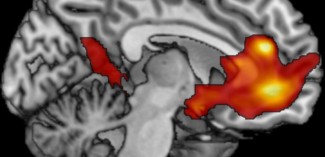Why do we like a painting or a person? Does our judgement depend only on the intrinsic value of the painting or the person? What if other factors intervene?
The team of Mathias Pessiglione, Sébastien Bouret and Jean Daunizeau, at the Institut du Cerveau - ICM, have just deciphered the brain mechanisms through which context influences our value judgements.
The researchers, using functional MRI in healthy subjects, confirmed the role of a region of the cortex, the orbital median cortex, in the attribution of value. In effect, the activity of this region increases when something pleases us.
The Institut du Cerveau - ICM researchers also showed that in the presence of enjoyable background music, the experimental subjects better appreciated the painting they were shown. Pleasing music increases the activity of the orbito-median cortex, predisposing the subject to better evaluate the painting. Thus, our value judgements are influenced by context and derive from the integration of internal and external information by the orbito-median cortex.
The team determined the main properties of this system for attributing value, which is highly conserved in humans.
Our tastes can be manipulated, thus if you want to seduce someone, find out what his favourite music is.
Figure legend: The regions of the brain that represent value judgements are in yellow/orange: the more something pleases us the more the signal increases in measures by functional MRI.







